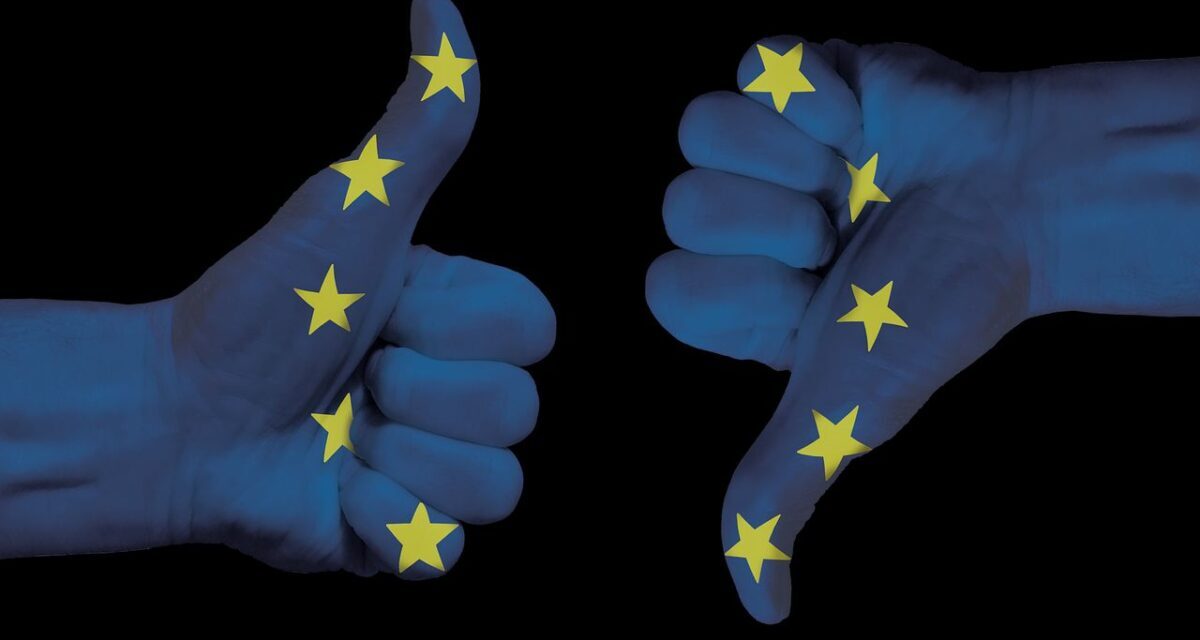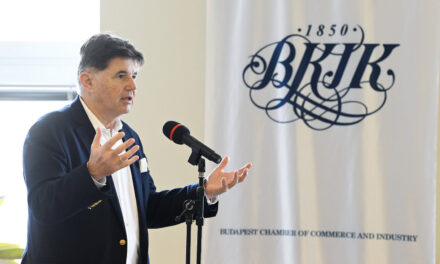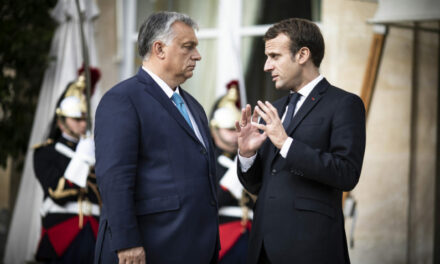Anyone who carefully reads the theories of geopoliticians quickly realizes that the theories always express the interests of the country or power represented by the given geopolitician.
Anyone who carefully reads the theories of geopoliticians quickly realizes that the theories always express the interests of the country or power represented by the given geopolitician, and provide guidance on how this power could be extended to new geographical areas.
Perhaps we can begin the presentation of the theories with Alfred Mahan (1840–1914), who was an officer in the US Navy and believed that the main tool of politics was trade, and the main way to secure trade routes was to build sea power. Based on this, he advocated the development of America's navy, which the United States then implemented - based on his principles - in the 20th century. Mahan extended to a global scale the anaconda principle used in the American Civil War, that is, that land powers such as Germany, Russia or China should be surrounded from the seas and if possible cut off from access to coastal areas. If we look at a map of US military bases today, we can see this principle perfectly realized.
We can continue the line with Halford Mackinder (1861–1947), a Scottish university professor and politician, who believes that it is most advantageous for a nation to be located in the middle of a geographical area. In line with this idea, he divided the globe into a hierarchical system of concentric circles.
In the middle is the "geographical axis of history", the World Island, which includes the connected continents of Europe, Asia and Africa. In the middle of the World Island lies the Heartland, which stretches from the Volga to the Yangtze and from the Himalayas to the Arctic.
This area practically corresponds to Russia at the time and the later Soviet Union. Mackinder attached great importance to this area not only because of its central location, but also because it is abundantly provided with both natural and human resources, and when he developed this theory (1904), the trans-Siberian railway line crossing the continent already existed , so the connection along the "geographical axis of history" began to develop. Mackinder attributed strategic priority to the "geographical axis of history" in his famous and oft-quoted formulation:
"Who rules Eastern Europe rules the Heartland, who rules the Heartland rules the World Island, who rules the World Island rules the world".
He believed that the main task of Anglo-Saxon geopolitics was to prevent the formation of a strategic continental alliance around the "geographical axis of history" (Russia).
After the collapse of the Soviet Union, Zbigniew Brzezinski's main advice for America was to build up its relations with the countries that broke away from the Soviet Empire, i.e. Ukraine and Central Asian countries, which make up the Heartland. According to Brzezinski, Ukraine's independence also deprived Russia of its dominant position on the Black Sea, where Russia's vital gateway to the Mediterranean and trade with the world was Odessa. As a result of all this, Russia's international status has significantly deteriorated, as many people now see it as nothing more than a third-world regional power whose opportunities have narrowed, so it either accepts America's leading role and integrates into the Western system, which would be most beneficial for Russia, or opposes it. , possibly in the framework of an Iranian-Russian-Chinese cooperation.
Russian geopolitician Alexader Dugin (1962– ) also developed a geopolitical system of views and adopted it from his predecessors, which highlights Russia's integrating role in Eurasia, i.e. supports Russian great power interests. The basis of this system of views is Eurasianism, a worldview that is plural because it recognizes the diversity of cultures, anti-racist and anti-colonialist because it does not recognize the superiority of any civilization over another, and conservative because it embraces traditions (folk cultures, language , the experience of belonging to an ethnic group) eternal values.
In addition, of course, he is pro-Russian and anti-Western, because the West considers its worldview to be universal and wants to impose it on everyone, which is unacceptable for other cultures. In this system of thought, the Great Russians are not simply a branch of the Eastern Slavs, but a civilization developed on the basis of Turkish-Slavic ethnogenesis, which was realized on a geographical basis as a historical alliance of the forest and the steppe, so the connection with the Turkic-inhabited areas in the south is organic. Another feature of Eurasian thinking is the identification of Islamic countries (especially continental Iran) as important strategic allies.
The idea of creating a European economic space dates back to the 19th century and is associated with the name of the German politician Friedrich Nauman (1860–1919). This idea was also supported by the Swedish geographer Rudolf Kjellén (1864–1922), from whom the concept of geopolitics itself originates. Kjellén believed that Germany was the axis around which the other countries of Europe should be organized.
Kjellén also developed the concept of autarchy, meaning that independence and, with it, independent politics are only possible if the given country or region has all the resources necessary for self-sufficiency. This idea was further developed by Karl Haushofer (1869–1946), who assumed the self-identification of Germany, its people and culture as the western continuation of the Eurasian and Asian tradition, therefore the concept of opening to the East did not mean the occupation of Slavic territories. Haushofer envisioned the joint civilizational efforts of the two continental powers, Russia and Germany, which must create a New Eurasian Order and transform the continental space of Mackinder's world island, so that it is completely removed from the influence of the maritime (Anglo-Saxon) powers. Haushofer wanted to expand the German living space not by colonizing the Russian territories, but by developing the huge uninhabited Asian territories and reorganizing the Eastern European territories. The entire geopolitical doctrine of Haushofer and his followers was based on this analysis and considered it necessary to create a continental block, that is, a Berlin-Moscow-Tokyo axis.
The fact that the unification of the continental powers could not be realized (although there was such a Holy Alliance before, of which we have a sad memory), is due to the fact that the European countries wanted to expand at the expense of each other and therefore fought two wars with each other, while the maritime (Anglo-Saxon) powers, in both cases they fought together and ended the wars victoriously, and the losing powers of Europe came under American (or Russian) military occupation. The European Economic Community founded by Schuman and Adenauer could have provided an opportunity for Europe to become independent.
De Gaulle wanted to take advantage of this, his famous saying that "Europe goes as far as the Urals" refers to this, and there were also forces in Germany that advocated opening up to the East.
However, this independence was not viewed favorably by the maritime powers, moreover, since the 1990s, the concentration of financial and media power has been such that most of today's European politicians, and especially the leaders of the European Union, no longer represent European interests, but the interests of the mentioned financial and media power, which can be summarized as the Euro-Atlantic background power. The defining American branch of this is what former US President Donald Trump calls the "deep state".
The Euro-Atlantic background power does not represent European or American interests, but its own expanding power interests, without having to bear any responsibility for its policies. This center of power is not an elected body that can be replaced by voting, and since it is not a single center, but consists of interwoven (financial, media, political, corporate, scientific, NGO) networks, it is very difficult to point out that for a given policy, for example the currently who is actually responsible for war or climate hysteria.
It would obviously be in Europe's interest that the more technologically advanced western half of the continent and the eastern half, which is richer in raw materials and energy sources, cooperate. This would have been reinforced, for example, by the second North Sea gas pipeline, which the United States opposed and which was eventually blown up, with the apparent intention of cutting off Western Europe from cheap Russian energy sources. The same goal is served by the so-called climate policy, which is not entirely a European invention, since it initially served the presidential ambitions of the American politician Al Gore, but which the German Greens, with only ten percent support, were able to make into the defining policy of the European Union. On the one hand, this climate policy in itself leads to a significant increase in energy costs, but the accompanying increasingly unrealistic standards are destroying European industry and agriculture as well, which can already be seen in the demonstrations of agricultural producers and the relocation of some companies from Europe, and ultimately in the decline of GDP and all those in problems caused by the stagnation and decline of incomes.
It is a difficult question how European interests could be protected against the politics of the Euro-Atlantic background power, since, as mentioned, they cannot be replaced democratically, and their financial and media power holds the entire political structure in their hands.
At the same time, they make mistakes of such a magnitude that it is easy to catch the eye even of Europeans who have little interest in politics. Their war propaganda, for example, is completely baseless. Russia is unable to attack NATO because its conventional armed forces are about one-tenth of NATO's. But why would it attack when it can develop mutually beneficial economic relations with the West? Another weak point of the EU leadership is the climate policy, here too it can be proven that it is unrealistic and unsuccessful. The third area where EU policy can be launched is immigration. The vast majority of the European public does not want illegal immigrants.
Finally, the vast majority of Europeans reject the idea of creating a European empire and vote for the cooperation of sovereign nation-states based on mutual economic interests.
The only thing we can do now is to convey the above to the wider European public with the help of the alternative media, which can then somewhat change the balance of power in the European Parliament elections and, later on, put leaders in positions at the nation-state level as well. they will be able to curtail the power of the Euro-Atlantic background power.
Featured Image: Pixabay












